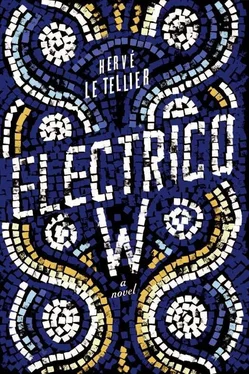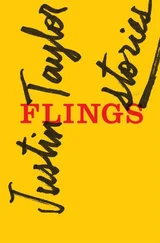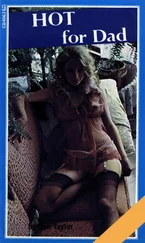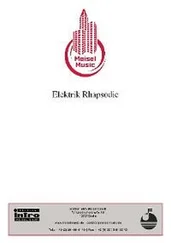
WE PARTED WITHOUT a word in the hotel corridor. I opened my door as he was putting his key into his lock, I gave him a last friendly wave, and took a few steps into my room.
For a split second, in the half light, I thought I recognized my reflection in a huge mirror to my left. But something was not right. This double seemed to have a life of his own, and I realized that, each through our own doors, Antonio and I had walked into the single lounge we had created between our two bedrooms. We took the same steps, made the same moves.
Antonio turned on a lamp, on autopilot, without noticing me there, and I caught the absent look his eye. I recognized the gaze of a man quite alone, drifting, far from his wife and child, a look of pure distress, of someone lost. I knew I had trespassed into his pain, and felt still more naked than he was, and also appallingly unhelpful, hungry for his sincerity, devoid of affection, rapacious as a chronicler of his suffering.
He noticed me, pulled himself together and gave a joyless smile before retiring to his bedroom and closing the door behind him.

THAT NIGHT, as I often did, I thought back to the life my father had resolved to leave behind, a grim gray life. I may have been wrong — it’s true that other people’s happiness is mind-numbingly boring — but I felt he had gone through life without the tiniest spark of incident. He was twenty just before the Second World War, but he was not a Resistance fighter, nor even a collaborator. He had absolutely no secret double life, or longing for adventure, absolutely no fifteen minutes of fame. Now that he was definitively dead, I took the step of resenting him for this, of wishing some of his glow could have cast light on my own life.
But it was memories of Irene that stopped me getting to sleep.
The first time I saw her was at the newspaper’s archives. She was standing there smoking, leaning out of the window. Most women conceal their bodies with clothes, Irene used them to draw attention to her nakedness under them. Her black dress revealed her slender shoulders and showed off her back. The fine material hugged her buttocks and hips, and her lovely breasts seemed to be making a bid for independence. Her mouth was half open, her lips full, almost maddening, gleaming pale pink. A hint of abandon in her movements and of color in her cheeks suggested someone had just made love to her, a languid look in her eye that she wanted it to be done again and again. She asked me what article I was looking for, I had already forgotten. At first I thought I just wanted her, violently; I soon realized that I loved her, hopelessly.
At that time of the evening, Irene was most likely drinking her tea as usual at the Saint-Elme, the bar on the rue des Abbesses where she “entertained.” It was her “salon,” she claimed. She used to make herself comfortable on the banquette at the far end of the room, always with two books, one essay, one novel, and that notebook I’ve hardly ever seen her write anything in at all. Her brown curls were carelessly held up with pins, and she was always careful to let a few locks escape, in an artful arrangement. With the black shawl that she wore in the evenings, whatever the time of year, she looked like a fortune-teller.
I had seen her at the Saint-Elme several times, rarely with the same men. When she introduced me to them — if she even did introduce me — it made her laugh that she sometimes barely knew their names. But these passing characters, who had probably noticed she was free and had only just approached her, enjoyed an intimacy I was never granted. I would stick around, at first just for a moment, and then for too long, in the hope she would make up her mind to get up from the table and come with me, but I was always the one to give up the fight, leaving her to enjoy her new catch. I always regretted giving in to my urge to see her, and trying to plead for so much as a smile from her, and I pictured her leaving with those men, giving herself to them, like a bitch in heat, yes, that was the expression that came to mind, with images to match. One evening she sat there with a tall, slightly balding man in glasses, “Stanislas, no, sorry, Ladislas,” who was giving her a boring lecture about “natural foods,” and I went home humiliated, crazed with impotent rage, and stubbed my cigarette out in the palm of my hand so that this pain would wipe out the other — in vain. The following day, when, with a note of anxiety in my voice, I tried to find out where and how the evening with Ladislas had ended, she was incensed by my questions. In the end, because I persisted clumsily and failed to disguise my own torment, she snapped in exasperation: “What do you want? To know if I slept with Lad, is that it? By what right, for God’s sake? Yes, if you must know, all night, he fucked me and fucked me again, do you want details?” Her coarseness hit the target, mortifying me, and even the cruel intimacy of that “Lad” was calculated to hurt me. But I shrugged, looked away, and fled, only to come back and apologize later.
So, as with every incidence of insomnia, I translated a few more Contos aquosos . My lifeline. Jaime Montestrela wrote them over a period of three or four years at a rate of one a day. It was his “daily exercise,” as he said in his “logbook.” He often copied out the day’s story and mailed it to someone, making a note of the addressee. Of the five I translated that night, I remembered the shortest, dedicated to a “Jacques B., in Paris”:
On the island of Tahiroha, on Good Friday, cannibals who have converted to Christianity eat only sailors.
I had found very little information about Montestrela, even at the Biblioteca Nacional. He was born in Lisbon in 1925, and belonged to that generation of Portuguese writers from the time of the dictatorship, an era that included Augusto Abaleira and Eugénio de Andrade, whom he may have known. After studying medicine, he embarked on a career as a psychiatrist at the Miguel Bombarda hospital in Lisbon, until 1950, when, under the name Jaime Caxias, he published a collection of activist poetry: Prisão (Prison). His pseudonym was not taken at random because Caxias was the place where political prisoners were tortured under Salazar’s dictatorship. Montestrela was soon unmasked, arrested by La Pide, the political police, and brutally interrogated for a week before being released. He planned his escape. He took exile in Brazil in 1951 and settled in Rio de Janeiro, where he found a job at the Capo d’Oro hospital. It was here that he wrote Nihil obstat , his only novel, a searing work heavily inspired by Lawrence Sterne, and Cidade de lama (City of mud), a “bizarre and masterful essay about solitude and exile,” as André Malraux would go on to write. It was also in Rio that he met another exile, the writer and critic Jorge de Sena, to whom he in fact dedicated Cidade de lama . In 1956 when the military regime took power in Brazil, the two friends set off in search of democracies once more. Jorge de Sena left for the United States and the University of Santa Barbara, and Jaime for France and Paris. In his small Belleville apartment, he wrote Contos aquosos , shortly before he died in 1975 of a ruptured aneurism after lunching with several writers, including Raymond Queneau. It is actually that detail, found in his brief obituary in O Século , that encouraged me to take an interest in him. I quickly checked that none of his work had been translated into French, and felt that these Watery Tales might make a good starting point.
Читать дальше













